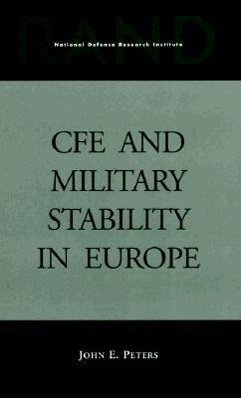Nicht lieferbar

Military Resistance to Humanitarian War in Kosovo and Beyond
An Ideological Explanation
Versandkostenfrei!
Nicht lieferbar
North Atlantic Treaty Organization (NATO) success in the Balkan conflict overshadowed Pentagon resistance to military intervention in Kosovo. Using the new institutionalism, content analysis of actors' statements, and recent civil-military relations studies, this paper explains why the Pentagon opposed war in Kosovo, and why it will likely oppose future such "humanitarian wars." This paper shows that the US military holds an institutionalized philosophy of conservative realism. This philosophy stems from the nature of the profession, and is transmitted to succeeding generations through the mil...
North Atlantic Treaty Organization (NATO) success in the Balkan conflict overshadowed Pentagon resistance to military intervention in Kosovo. Using the new institutionalism, content analysis of actors' statements, and recent civil-military relations studies, this paper explains why the Pentagon opposed war in Kosovo, and why it will likely oppose future such "humanitarian wars." This paper shows that the US military holds an institutionalized philosophy of conservative realism. This philosophy stems from the nature of the profession, and is transmitted to succeeding generations through the military's unique cultural, historical, and educational traditions. Within this philosophical paradigm, the Pentagon views war as a legitimate political tool used only as a last resort, and then only for promoting or defending the nation's survival or vital interests. The Pentagon resisted military intervention in Kosovo because intervention on behalf of human rights was incompatible with this institutionalized, conservative philosophy. Indeed, the Clinton administration's justification for military intervention stemmed directly from the liberal, Wilsonian tradition of basing foreign policy on universal principles rather than interests. Such a rationale was, and remains, antithetical to the military's interest-based, conservative view of war. The paper concludes that this military philosophy is unlikely to change in the short term, that it will continue to strain relations with liberal administrations, and that it ultimately helps prevent cavalier uses of American military power.













